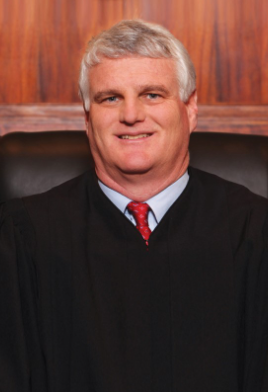HONOLULU (Legal Newsline) - The chief justice of the Hawaii Supreme Court acknowledged he collaborated with a nonprofit environmental group to discuss climate litigation as he prepares to hear an appeal in Honolulu’s lawsuit against the energy industry.
In a brief notice filed earlier this month, Justice Mark Recktenwald gave parties until Friday to object to his participation in the case. ExxonMobil, Shell, BP and other oil companies are appealing a lower court’s refusal to dismiss the lawsuit, in which the city and county of Honolulu accuse them of misleading consumers about human-induced global warming.
Environmental Policy Advocates, a group opposed to climate litigation, had requested information about the judge’s involvement with the Environmental Law Institute, a nonprofit that says it educates “thousands of professionals” and judges yearly about environmental issues. Justice Rektenwald released a description of his participation with ELI in an April 4 course offered by the National Judicial College and said he will lead a talk about climate litigation before another judicial conference in June.
“I enter this notice on the record so that any party who has any concerns about my participation in this matter may object,” the justice wrote. Separately, the justice said he will respond to EPA’s records request by May 22.
Environmental Policy Advocates said both Justice Recktenwald and Judge Jeffrey Crabtree, the judge who rejected the energy companies’ motion to dismiss, were invited to the April conference. Such judicial conferences frequently include presentations by consultants to plaintiff lawyers but “dissenting voices skeptical of the plaintiffs’ claims never feature at such events,” EPA said.
“The Hawai'i judicial code of conduct, like those everywhere, is clear that avoiding even the appearance of bias or partiality is paramount,” said Rob Schilling, EPA’s executive director, in an emailed comment. “The history of these seminars, from their timing and origins to the widespread and extremely active participation by judges hearing these cases — which of course was the seminars' entire objective — is something that it is difficult to conceive is actually happening in the U.S.”
Justice Recktenwald attached slides from his presentation to his notice. Most of them dealt with litigation related to climate change, such as disputes over land use regulations the effects of sea level rise. Two slides dealt with “Marketing and Consumer Protection,” the legal strategy plaintiff lawyers have adopted to sue energy companies on behalf of state and local governments.
“The argument: Corporations engaged in deceptive sales and marketing campaigns that have resulted in damaging climate impacts,” one slide says. “Cases should be remanded to state courts (U.S. Solicitor General 3/16/23).” Energy companies have fought a pitched but largely unsuccessful battle to keep climate lawsuits in federal court. The U.S. Supreme Court on April 24 declined to review appeals in several cases, allowing cities and counties, typically represented by private lawyers working under contingency fees, to sue in their home courts.
The final slide of Justice Recktenwald’s presentation urges participants to “Contact Us” at Climate Judiciary Project of ELI. The organization says it educates “thousands of environmental professionals each year in the United States, with the conviction that more skilled environmental professionals result in better environmental outcomes.”
The board of directors at ELI includes executives with BP, Google, JP Morgan and Walmart as well as partners at corporate law firms like Baker Botts, Latham Watkins and Gibson, Dunn & Crutcher. The board also includes the general counsel of the Environmental Defense Fund, the litigation director for the Clean Air Task Force and Alex Wang, a UCLA law professor and former senior attorney with the Natural Resources Defense Council.
